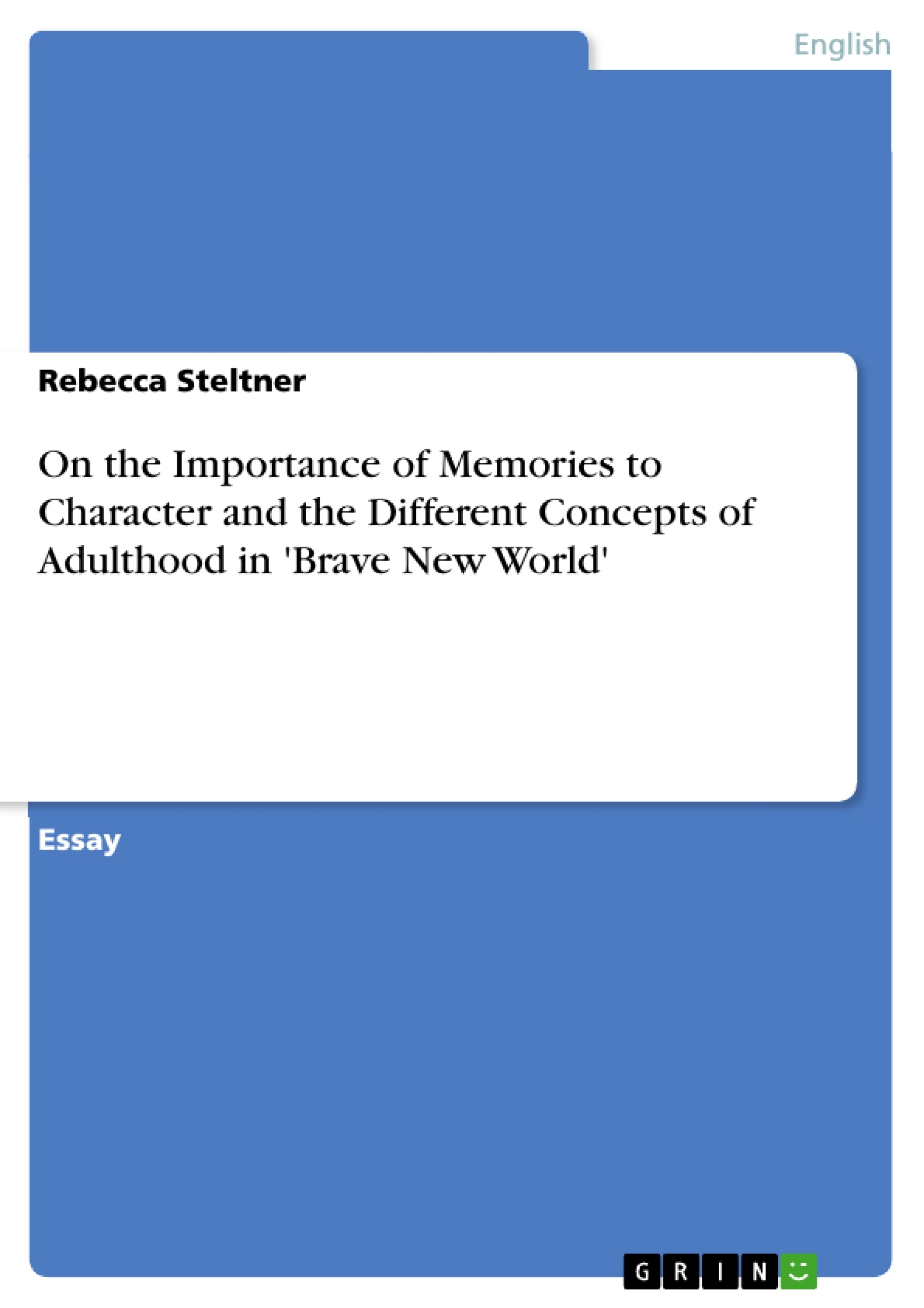Of all questions that Aldous Huxley’s 'Brave New World' (BNW) raises, I have chosen to analyse the role of memories and past within the society described. This will lead to the questions of what the qualities of adulthood really are, and why the character of Bernard Marx doesn’t feel like an adult.
These themes are most present in chapter 6, but to present the whole topic, I will also quote from other chapters. First of all, I will need to quickly introduce to you the perception of character and individuality in BNW. One quote summarises it all: “‘Characters remain constant throughout a whole lifetime’”,(p.80, ll. 1,2). But how is this character achieved in the
first place, if there’s no development? – Only through conditioning! The character is made! It’s artificial, yet we cannot deny that it’s there.
Therefore the question should rather be: Can a character that doesn’t evolve be real? Aren’t development or simply change it’s most important aspects?
We would immediately know, what to answer, but to the inhabitants of Brave New World, even the question must seem ridiculous, because they do not celebrate individuality. Even the Alphas only have a limited amount of free will and they do not differ much from each other, neither in appearance, nor in personality. This is because their aims are all alike. As the examples of Bernard and Helmholtz show (who are both considered exceptional individuals), individuality is a mere nuisance to those living in BNW. This may be due to the fact that character has no influence on life whatsoever career and social activities are imposed on them and there is no room for choice according to one’s likings. Also, to others, character doesn’t matter, only the ability to consume happiness is of importance. The individualist part of the human nature is completely denied as the following quote shows: “[…] for doing things in private. Which meant, in practice, not doing things at all.”, (p.116, ll.5f).
Table of Contents
- Chapter 6: On the Importance of Memories to Character and the Different Concepts of Adulthood in Brave New World
Objectives and Key Themes
This essay explores the role of memories and the past in the dystopian society of Aldous Huxley's Brave New World, specifically examining the implications for individual development and the concept of adulthood in this context. The essay argues that the lack of memory and the suppression of personal development in Brave New World contribute to a society of perpetual childhood, where individuals are denied the full potential of human experience.
- The role of memories and past experiences in shaping personality
- The artificial nature of character and the limitations of conditioning in Brave New World
- The absence of individual development and the implications for the concept of adulthood
- The social impact of the suppression of memories and the breakdown of human relationships
- The use of soma as a means of controlling emotions and perpetuating a state of perpetual happiness
Chapter Summaries
Chapter 6 explores the importance of memories in shaping character and the different concepts of adulthood in Brave New World. The author argues that the Brave New World society, through its conditioning and suppression of personal development, prevents individuals from fully experiencing the stages of human growth, particularly the transition to adulthood. This is reflected in the characters' lack of individual memories and their inability to form meaningful relationships. The essay highlights the consequences of this lack of memory, including the inability to form lasting bonds, the suppression of emotional depth, and the dependence on soma for happiness.
Keywords
This essay focuses on key concepts such as memory, individuality, character development, adulthood, conditioning, dystopia, and the social impact of technology in Aldous Huxley's Brave New World. The essay delves into themes of individual freedom, the suppression of emotions, and the consequences of a society that prioritizes stability and happiness over personal growth.
- Quote paper
- Rebecca Steltner (Author), 2000, On the Importance of Memories to Character and the Different Concepts of Adulthood in 'Brave New World', Munich, GRIN Verlag, https://www.grin.com/document/67820




